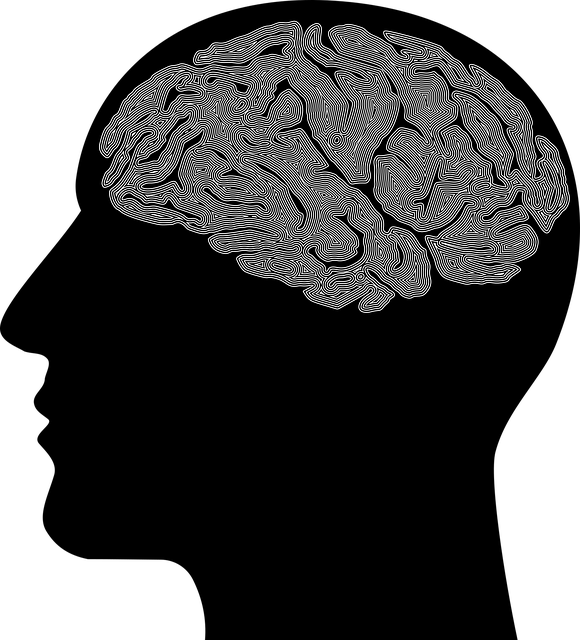Misdiagnosis of mental health conditions in sexual abuse survivors presents significant challenges. To address this, Parker Sexual Abuse Survivor Therapy (PSAST) advocates for several strategies. These include enhancing clinical training in trauma-informed care, integrating evidence-based assessment tools, fostering open communication, and implementing risk management plans. PSAST also produces mental wellness podcasts to educate professionals and survivors, improving diagnostic confidence and encouraging early intervention. By adopting these innovative approaches, PSAST aims to improve diagnosis accuracy, empower survivors, and ultimately enhance mental health awareness and well-being.
Mental illness diagnosis accuracy is a critical aspect of patient care, especially for individuals like Parker Sexual Abuse Survivors. This article explores targeted efforts to improve diagnostic techniques, focusing on misdiagnosis challenges and their profound effects. We delve into enhanced evaluation methods, emphasizing a holistic approach. Integrating trauma-informed care ensures survivors receive compassionate support throughout the diagnosis process. Additionally, we highlight the pivotal role of training and education in empowering professionals to make accurate diagnoses, ultimately benefiting Parker Sexual Abuse Survivor Therapy.
- Understanding the Challenges: Misdiagnoses and Their Impact on Parker Sexual Abuse Survivors
- Enhancing Evaluation Methods: A Comprehensive Approach to Diagnosis
- Integrating Trauma-Informed Care: Supporting Survivors Throughout the Process
- Training and Education: Empowering Professionals for Accurate Diagnoses
Understanding the Challenges: Misdiagnoses and Their Impact on Parker Sexual Abuse Survivors

Misdiagnosis can significantly impact Parker Sexual Abuse Survivors’ journeys towards healing and recovery. The complexities of trauma-related symptoms often lead to challenges in accurate diagnosis, especially when co-occurring disorders are involved. Mental health professionals must be vigilant in recognizing the nuanced presentation of sexual abuse-induced trauma, which may manifest as anxiety, depression, or even psychotic symptoms, mimicking other conditions. This is particularly critical given the heightened risk factors associated with sexual abuse survivors, including substance misuse and self-harming behaviors, that can further complicate the diagnostic process.
For Parker Sexual Abuse Survivor Therapy, improving diagnosis accuracy involves a multi-faceted approach. Enhancing clinical training in trauma-informed care, integrating evidence-based assessment tools, and fostering open communication between survivors and practitioners are essential steps. Additionally, implementing Risk Management Planning for Mental Health Professionals can mitigate potential harm and foster a safer therapeutic environment. Moreover, mental wellness podcast series production can play a role in educating both professionals and survivors about the intricacies of trauma healing, thereby boosting confidence in the diagnostic process and encouraging early intervention.
Enhancing Evaluation Methods: A Comprehensive Approach to Diagnosis

Diagnosis accuracy in mental health is a complex issue that demands a multifaceted approach, one that goes beyond traditional methods. Enhancing evaluation techniques is a crucial step towards improving diagnosis, especially for conditions with high complexity and comorbidity, such as those experienced by Parker Sexual Abuse Survivor Therapy clients. By integrating innovative tools and practices, the field can move towards more precise and personalized assessments.
This comprehensive strategy involves adopting advanced assessment tools tailored to trauma-informed care, like Trauma Support Services, which have proven effective in uncovering subtleties that conventional methods might miss. Compassion Cultivation Practices and Mental Wellness Journaling Exercises offer valuable insights into an individual’s emotional landscape, aiding therapists in interpreting complex behaviors and symptoms. Such approaches not only enhance diagnostic accuracy but also foster a deeper understanding of the client’s unique experiences, ultimately leading to more effective treatment planning.
Integrating Trauma-Informed Care: Supporting Survivors Throughout the Process

Integrating Trauma-Informed Care is a significant step towards improving mental illness diagnosis accuracy, especially for survivors of sexual abuse like those who often turn to Parker Sexual Abuse Survivor Therapy. This approach recognizes that traumatic experiences can significantly impact an individual’s mental health and behavioral responses. By adopting trauma-informed practices, healthcare professionals create a safe and supportive environment, fostering open communication and trust with clients. Such care encourages survivors to share their stories without fear of judgment, leading to more accurate assessments.
Trauma-informed care involves various strategies, including training staff in trauma awareness, ensuring confidentiality, and promoting self-care practices among both caregivers and survivors. It also incorporates Emotional Well-being Promotion Techniques tailored to address the unique needs of each individual. This holistic approach not only enhances the accuracy of diagnoses but also empowers survivors to take control of their mental health journey, ultimately improving their overall Mental Health Awareness and well-being.
Training and Education: Empowering Professionals for Accurate Diagnoses

Mental illness diagnosis accuracy is significantly enhanced through comprehensive training and education initiatives aimed at empowering healthcare professionals. This involves ongoing workshops and seminars that delve into advanced assessment techniques, updated research findings, and best practices for recognizing subtle symptoms often associated with mental disorders. Such programs foster a deeper understanding of diverse conditions, including those related to trauma and stress, such as those experienced by Parker Sexual Abuse Survivor Therapy clients. By equipping practitioners with the knowledge and skills to accurately diagnose, they can facilitate more effective treatment planning, ensuring individuals receive appropriate care for their unique needs.
In addition to formal education, creating a culture of ongoing learning within healthcare settings is vital. Encouraging professionals to share knowledge, collaborate on complex cases, and stay updated with emerging research contributes to collective growth and improved diagnostic capabilities. This collaborative approach not only benefits individual patients but also enhances the overall quality of mental health services, especially when coupled with effective Stress Reduction Methods and Trauma Support Services. Increased Mental Health Awareness among healthcare providers leads to more empathetic and precise diagnoses, ultimately improving patient outcomes.
The journey towards improving mental illness diagnosis accuracy, especially for Parker Sexual Abuse Survivors, involves a multifaceted approach. By understanding the unique challenges and incorporating enhanced evaluation methods, trauma-informed care, and comprehensive training, we can significantly improve outcomes. This holistic strategy ensures that professionals are equipped to provide accurate diagnoses, offering much-needed support and hope to survivors navigating their therapeutic path. Embracing these improvements in mental health assessment is a crucial step towards empowering individuals to heal and rebuild their lives.














